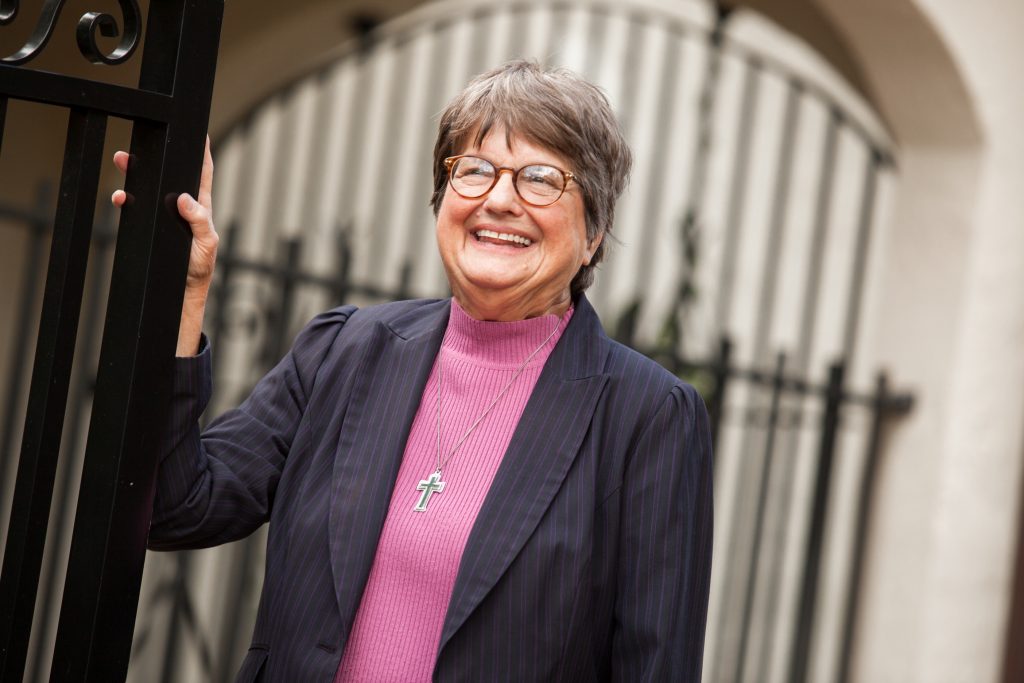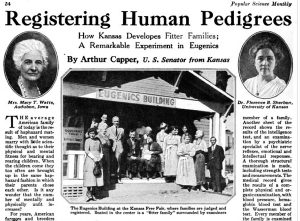Capital punishment has been used in the United States since its independence from the United Kingdom and is still applied in many of the 50 states today, with most executions in Texas, Virginia, Georgia, and Alabama. Over time, advocates have agreed that the death penalty is morally wrong and they argued that it should be considered unconstitutional, yet they have not achieved an end to capital punishment in either state legislatures or in the Supreme Court.1
During the 1700’s, advocates against the death penalty were able to restrict this punishment to those committed heinous crimes. In 1847, the anti-death penalty community helped capital punishment to be removed from Michigan. This was changed after World War I ended. In 1924, the state of Nevada decided to use lethal gas as an execution process. Then came the execution of Gee Jon for murder, which brought back death as the punishment for inflicting death or murder. 2 Anti-death penalty movements did not regain strength until Sister Helen Prejean helped to cast the debate in different terms.

Since 1981, Sister Helen Prejean has been a strong voice, and a most prominent one in the anti-death penalty community. Most humans and governments will not heed God’s commandment Thou Shall not Kill, but Sister Prejean became a strong advocate for that commandment. Beyond the religious imperative, Prejean explains how capital punishment is not useful in any way and is very dysfunctional. She has dedicated her life to God in the prison ministry in New Orleans. While Sister Prejean was living in the St. Thomas housing project, she began to write to a man who was convicted of killing two teenagers, Patrick Sonnier. Sonnier was to be executed by the electric chair in the State Prison of Louisiana.3
While Sister Prejean continuously visited Sonnier, she realized that executions were a huge issue, not only in Louisiana, but around the world. Sister Prejean wrote about her experiences in the book she wrote Dead Man Walking: An Eyewitness Account of the Death Penalty.4 She writes and explains how Louisiana’s prison system corrupts those who are involved with carrying out the execution. Especially security guards or “prison wardens” are not alert when working, along with working in that environment, is the feeling of being stressed. The stress can cause them to react in a certain ways toward prisoners and even accept the death penalty against them.5 Prejean mentions how many politicians support the death penalty mainly because they do not want to be mocked for being weak on crime by having an anti-death penalty stance.6
Helen Prejean during these times took the initiative to spend time with the victims’ families and understand why the death penalty is a win for them. The reason the victims’ families believe this is a pro for them is because it is “healing” and they receive “faux closure”. During those fifteen years, she continued to witness five other executions in Louisiana and to this day gives the younger generation information on the death penalty by writing and giving lectures.7
Prejean always took the anti-death penalty to the political system and even caused a few battles with some victories that were not big, but in that time it was still something to her. She did everything she could to gain justice, but the movement ultimately could not completely end capital punishment in the US.8

Prejean did her best to abolish the death penalty and she always gave many reasons for it, but with the issues coming against the fear of criminals and the devaluation of human lives, it is still unlikely to see its eradication in the US. Today, Prejean as the founder of “Survive” runs this victim’s advocacy group in New Orleans. In addition to that, she counsels inmates who are on death row and she provides support to the families of victims who were murdered.
Barry Scheck’s Innocence Project helps those who are innocent to increase awareness and prevent execution. Prejean has received an award from the Innocence Project of Florida for her outstanding work in advocating against the death penalty. “Sister Helen asked…”, during her speech, “…but what about the people advocating and fighting for them and the people working at innocence projects?”.9
No matter the outcome, fighting for what is morally right continues to drive advocates who stand against the death penalty. Prejean will continue to investigate flaws in the death penalty system which has led to many innocents being wrongly executed. Sister Prejean questions the justice system because of the discriminatory way that capital punishment is disproportionately applied to minorities. As she continues, there is still hope in Washington for the Death Penalty to be removed. Senator Miloscia warns against the killing of innocent people, he calls these “improper death penalty executions.”10 Although many still support the death penalty, change occurs when new elected officials like Governor Inslee pronounce themselves against capital punishment. As we learned from Sister Prejean, fighting for justice is a moral commandment.
- George Brauchler and Rich Orman, “Lies, Damn Lies, and Anti-Death Penalty Research,” 93, no. 3 (2005): 635-714. ↵
- McLaughlin, Jolie. “The Price of Justice: Interest-Convergence, Cost, and The Anti-Death Penalty Movement,” Northwestern University Law Review,108, no. 2 (2014): 675-710. Academic Search Complete, EBSCOhost. ↵
- “Biography” Sister Helen Prejean. https://www.sisterhelen.org/biography/.(2018). ↵
- Helen Prejean, Dead man walking: an eyewitness account of the death penalty in the United States, (New York: Vintage Books, (1994). ↵
- Lewis, Dorothy Otnow, Catherine A. Yeager, Pamela Blake, Barbara Bard, and Maren Strenziok. “Ethics Questions Raised by the Neuropsychiatric, Neuropsychological, Educational, Developmental, and Family Characteristics of 18 Juveniles Awaiting Execution in Texas.” Journal Of The American Academy Of Psychiatry And The Law, 32. No.4 (2004): 408-429 PsycINFO, EBSCOhost. ↵
- Daniels, Kristen Whitney. “Helen Prejean sways hearts with stories.” National Catholic Reporter 53(24), (2017): 1a-2a. ↵
- Press Release. “Innocence: Another Exoneration from Death Row—Reginald Griffin of Missouri,.” Death Penalty Information Center. (2015). ↵
- Mallory, Conally. “Abolitionists at home and abroad: a right to consular assistance and the death penatly.” Melbourne Journal Of International Law no. 1 (2016). ↵
- De La Fuenta, Alejandra. “My Experience at Innocence Project of Florida’s 2016 Steppin’Out Spring Gala.” Plain Error: The Official Blog of The Innocence Project of Florida. (2016) ↵
- Lauren Gill, “End of the Death Penalty? Washington Could Become the Next State to Abolish Capital Punishment” Newsweek, (2018). ↵



121 comments
Robert Rodriguez
This title caught my attention very quickly. This is a very controversial topic in todays society because it involves something that cannot be reversed, the taking of a persons life. When you murder someone you’re not only taking a life but your destroying everything that the person could be. it is honestly amazing that Sister Prejean is standing with those who may not have very long to live. its also inspiring that she’s putting herself out there for these people and voicing her opinion in which some may agree with. The author did a great job putting this article together and showing the readers insight on the amazing things Prejean has done for society.
Destiny Renteria
I appreciate your comment, thank you!
Cristina Cabello
This is a very controversial topic. In high school I had to debate over this, and hated doing that assignment so much. But you developed this article really well. I find it crazy how messed up the world is. What really is justice? How can people be saved from these criminals? Does anyone really know what the right thing to do when it comes to the death penalty? Overall you did good job!
Destiny Renteria
Thank you so much !
Maricela Guerra
I am more into the middle with the idea of the death penalty. I see that it isn’t a great punishment to those who did commit murder. However to the families who are now hurt for the rest of their lives is completely different. That’s why I am so stuck into the middle, on one hand we would like to see things done to others that they did to us. But two wrongs don’t make a right, so I guess that’s why it is so difficult whether to shame the death penalty or to applaud it.
Destiny Renteria
It is hard to decide on where you stand, but it is all understandable. We all have different opinions and views and I appreciate your comment on where you stand!
Johnanthony Hernandez
Interesting article, when I studied Criminal Justice we dedicated a few classes to my court systems class discussing the death penalty. Needless to say, the discussion became heated with half of the class being for and the other being against. While I can see the argument against the death penalty and that some have wrongfully been put to death for a crime they didn’t commit and can admit that their needs to be more options for a convict to appeal the sentence especially for those that did not commit the crime.
Destiny Renteria
Thank you! I am sure we have all had a class where a debate turned into a heated argument over this topic.
Kayla Lopez
The topic about the death penalty is a very controversial one, so I commend you on being able to produce a very well written article. Prejean was a very brave and courageous woman for trying to remove the death penalty verdict from certain states. It was heartwarming to read about how she did work as a family counselor to be there for people who have lost people in their lives.
Destiny Renteria
Thank you Kayla!
Isaac Rodriguez
Although the death penalty is a controversial topic, it interesting to learn more about it. Whether you are for or against the death penalty, it is undeniable that Sister Helen Prejean has worked hard and fought for what she believes is morally right. I am sure it difficult for families who have a loved one facing capital punishment, which is why I respect her advocacy group “Survive.”
Destiny Renteria
Thank you!
Noah Laing
Sister Prejean and her beliefs are very courageous, as this topic of capital punishment has been debated since its existence and is highly controversial, and I’m sure the justice system doesn’t enjoy having its flaws pointed out. I think it’s inspiring to see her show so much humility and fight for what she believes needs to be fixed, because there have been people who are wrongfully sentenced and that’s awful. Good article.
Destiny Renteria
thank you!
Austin Pena
Great Article! I would have to agree with Sister Prejean that the death penalty is never a solution no matter what the crime may have been. Sister Prejean has dedicated her life to this topic on the death penalty and has made a stand against it. Not only does she go one on one with the ones on death row, but she also talks to those around these individuals along with the families of the victims. I believe she has a good stance on why it should be outlawed, but only time can tell whether people were listen to her.
Destiny Renteria
Thank you!
Timothy ODekirk
What a fantastic article. I am so glad that someone has decided to research and to write about this amazing story and this great topic. I first learned about this story and of Sister Helen Prejean when my religion teacher last year in high school presented us the movie, “Dead Man Walking”. The movie was based on the outstanding book, and was well produced. the movie opened my eyes about the story of Sister Helen and how the death penalty really does nit solve anything, and is truly not justice. The death penalty has been proven to be morally wrong and Sister Helen proves that from her several encounters with inmates sitting in death row. This was a spectacular article and was well worth the read, and it opens my eyes about the death penalty and why we even have it in the United States.
Destiny Renteria
Very kind words, I appreciate your feedback!
Michael Thomas
I found this article interesting because of how it details the argument against the death penalty. The death penalty seems controversial to most people, but some find it as a form of justice against those who have committed crimes that are reprehensible. For this type of issue, I am in the middle because there is still justice in giving someone a life sentence, yet there should be a harsher punishment for those who have committed atrocious acts, like cannibalism or a murder spree.
Destiny Renteria
Thank you for your comments!